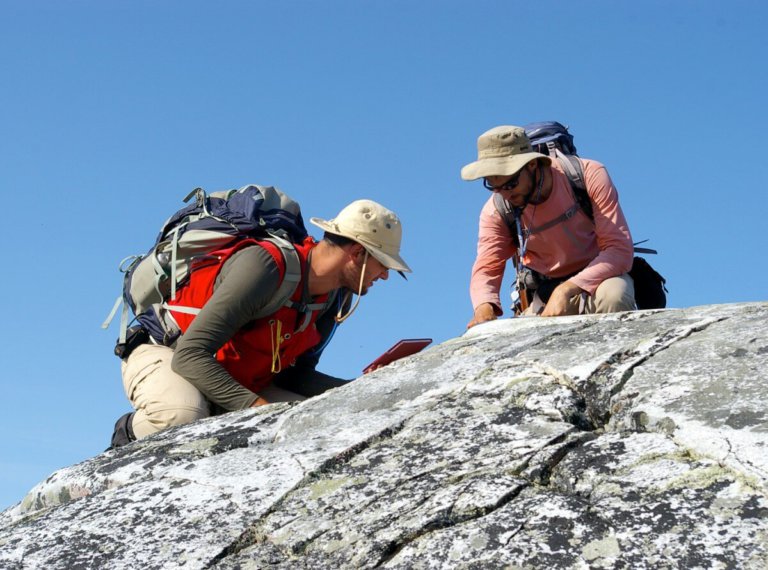
On your next study abroad adventure, you could study at a world-class university, live in the top country for quality of life or kickstart a career with a good work-life balance.
In Canada, you can do all three.
For an unforgettable university experience, the University of Regina offers an enviable trifecta to aspiring future scientists from Europe: a great place to study, live and work. From the moment you receive your offer letter to the moment you graduate, studying at its Faculty of Science means receiving the best education Canada has to offer.
The Faculty of Science is a premier postsecondary academic unit that embodies this renowned quality. Here, students can choose from the diverse programmes on offer: Biochemistry, Biology, Chemistry, Computer Science, Geology, Mathematics, Physics and Statistics. No matter which field they choose, students benefit from the significance, novelty and impact of the university’s research, as well as for the quality, relevance and currency of its academic programmes.
But academic quality is by no means the only aspect the Faculty of Science is renowned for.
The Saskatchewan province, where the university is located, makes this a university with plenty of research and practical learning opportunities. Regardless of the many and diverse programmes you’re enrolled in, students will be able to take part in or benefit from the specialised research that underpins the innovation the faculty is well known for.
Björn Wissel, an Associate Director of the university’s IECS (Institute of Environmental Change and Society) chose to move from Germany to teach and conduct research in Canada for this very reason. Wissel’s passion is in inland waters and Canada is home to some of the worlds-largest freshwater sources and millions of lakes – “unrivaled opportunities for research” as he describes it.

Björn Wissel. University of Regina
With a climate crisis looming, it made even more sense for Wissel to surround himself with the brightest minds and research opportunities available here.
“Canadian scientists are world leaders in assessing the impacts of climate change, industry, agriculture and urbanization on diverse lake ecosystems, and this research is helping to protect water resources globally,” he explained.
“Canadian universities provide a supportive research and teaching experience that enables faculty and students to excel in a stimulating and welcoming environment,” he added.
This collegial spirit extends beyond the classroom, making both the university and Canada a great fit for Europeans. Culture shock is an inevitable experience for many international students but the many features (even quirks) of the Great White North greatly soften this discomfort, and in some cases, even makes it redundant.
There are many reasons for this; as a medium-sized university located in the heart of Canada, it’s an institution “large enough to feel cosmopolitan while retaining an intimate atmosphere”. Students from over 90 countries and top scholars from their respective fields greatly benefit from dedicated services and compassionate support for everything, from housing to establishing a home away from home to professional career advice.
Beyond campus grounds, Canada is a country known for many things. As many international students and professional migrants in the Scandinavia of the Western hemisphere would attest, Canada is one sophisticated, prosperous and educated nation.

University of Regina
The culture is a nice “amalgamation of European social policies with a North-American entrepreneurial free-spirit,” according to Wissel. And the way this can manifest itself in the cultural and social life here is a sight and experience to behold. People love hockey and football, wear scarves and baseball caps and eat fine cheeses and hot dogs – there’s something for everyone in the much-talked about inclusive spirit of Canada.
“My personal experience has been that students and researchers come for education and science but stay for the people.”
Another reason why Canada has succeeded in retaining the best and brightest of their international student cohort is the work opportunities available.
Students can work up to 20 hours per week during school terms. Once they graduate, there is an easier transition from study to post-study visa, for example, through the Post-Graduation Work Permit, eligible to graduates of certain designated learning institutions to gain work experience after graduating. This is a great option for students who are keen to pursue a life and career in Canada as the PGWP can be a great bridge for this – especially for young researchers and specialists in science.
Add to that the many soft skills gained from studying abroad in a country like Canada, and you’ve got a complete package of growth, personal and professional.
“Studying abroad naturally leads to learning new languages, adapting to different cultures, dealing with unforeseen circumstances and growing your personal and professional network. Consequently, communication, interpersonal, and leadership skills as well as confidence and independence are invaluable benefits of studying abroad,” said Wissel.
If you’re looking to make the most of your study abroad adventure and propel your career in science forward, choose the University of Regina.
Follow the University of Regina on Facebook, Twitter and YouTube, and the Faculty of Science on Facebook, Twitter and Instagram
Liked this? Then you’ll love…
University of Regina: Where scientific inquiry meets societal impact
University of Regina: Preparing you for the hottest STEM jobs in Latin America







